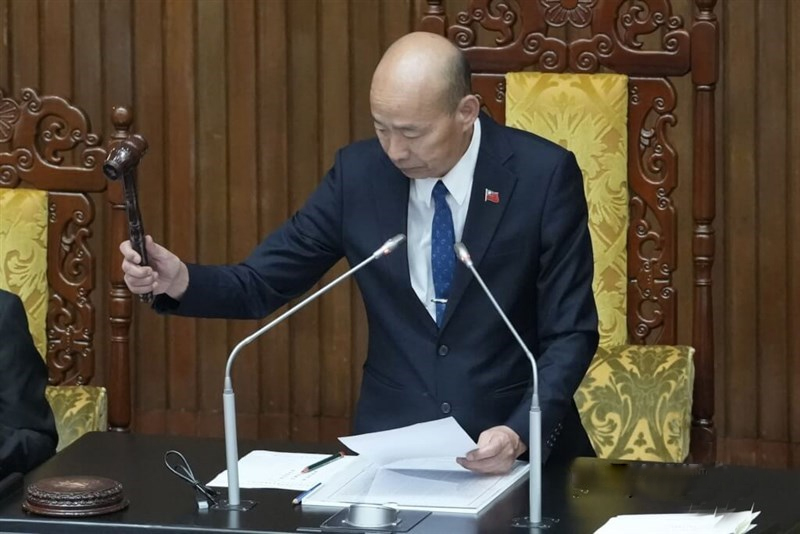Taiwan’s Legislature, led by the Taiwan People’s Party (TPP) and backed by the Kuomintang (KMT), passed landmark amendments to the Court Organization Act on Friday enabling live‑streaming of selected court sessions. The Democratic Progressive Party (DPP) staunchly opposed the measure, warning it could compromise judicial impartiality. The amendments will take effect 30 days after presidential promulgation by President Lai Ching‑te.
🏛️ Key Legislative Changes
- Public Access to Deliberations & Verdicts: Judges must publicly announce verdicts, and when courtrooms are full, proceedings can be relayed to nearby public galleries.
- Streaming Evidence in High‑Profile Cases: Courtrooms will generally not broadcast evidence sessions, except in cases deemed of “significant public interest” when requested by a party and approved by the court.
- Exemptions for Sensitive Cases: No livestreaming in Supreme or Grand Chamber hearings involving national security, public order, trade secrets, or personal privacy.
🎯 Proponents’ Arguments
- Transparency & Public Trust: TPP Chair Huang Kuo‑chang stated the bill aims to let sunshine illuminate judicial proceedings and enhance accountability.
- Democratic Oversight: The KMT views streaming as reinforcing—not undermining—the authority of the judiciary.
⚠️ Opposition & Expert Concerns
- Judicial Impartiality at Risk: The DPP, Minister of Justice Huang Shih‑chieh, and the Judicial Yuan warned that rushed passage could compromise trial fairness.
- International Comparison: Countries like the U.S., Germany, Japan — often cited for judicial transparency — only allow limited recording. Live‑streaming risks privacy violations, witness intimidation, and evidence manipulation.
- Rushed Legislative Process: Critics point to the rapid shift to second reading as emblematic of broader legislative power grabs by the TPP‑KMT alliance.
🔍 Deeper Implications
- Judicial Fairness vs. Transparency
- Proponents argue public scrutiny fosters trust. Opponents fear livestreamed hearings may sway judge behavior under public pressure, especially in sensitive or high-stakes cases.
- Political Tensions
- The DPP warns this move is part of a broader legislative strategy by opposition forces to constrain judicial and executive power—a strategy viewed by some as increasing the risk of undue influence on the judiciary.
- International Standards in Question
- Unlike many Western democracies, Taiwan’s decision veers toward open courtroom proceedings. The Taiwan Judges Association, echoing global norms, emphasized caution, citing risks of misinformation or fear among witnesses.
🔮 What Comes Next?
- Regulatory Framework Needed: Courts must establish guidelines for deciding which cases qualify for full streaming, how to protect participants’ rights, and methods for moderation.
- Practice vs. Principle: The Judicial Yuan’s warning that this may undermine fair trials needs addressing through pilot programs, impact assessments, and public feedback mechanisms.
- Monitoring Political Use: As the reforms coincide with tensions over TCPA amendments, recall campaigns, and legislative gridlock, civil society and judicial experts will be watching closely for signs of politicized interference.
FAQs
Which court sessions will be streamed?
Verdicts, major trials of fact, and appeals will be publicized; high-profile evidence sessions may be streamed if deemed in the public interest. National security cases are exempt.
Why is Taiwan adopting streaming now?
TPP and KMT factions frame it as increasing transparency and public oversight, especially in highly politicized cases.
How do other democracies compare?
While democracies like the U.S., Germany, and Japan allow recordings, full livestreaming is rare; they typically reserve it for appellate proceedings, not trial-level public broadcasts.
What are the concerns?
Risks include witness intimidation, evidence distortion, media sensationalism, biased public opinion, and potential political manipulation.
When will this take effect?
The amendments enter into force 30 days after being signed by President Lai Ching‑te. Implementation details are pending.


